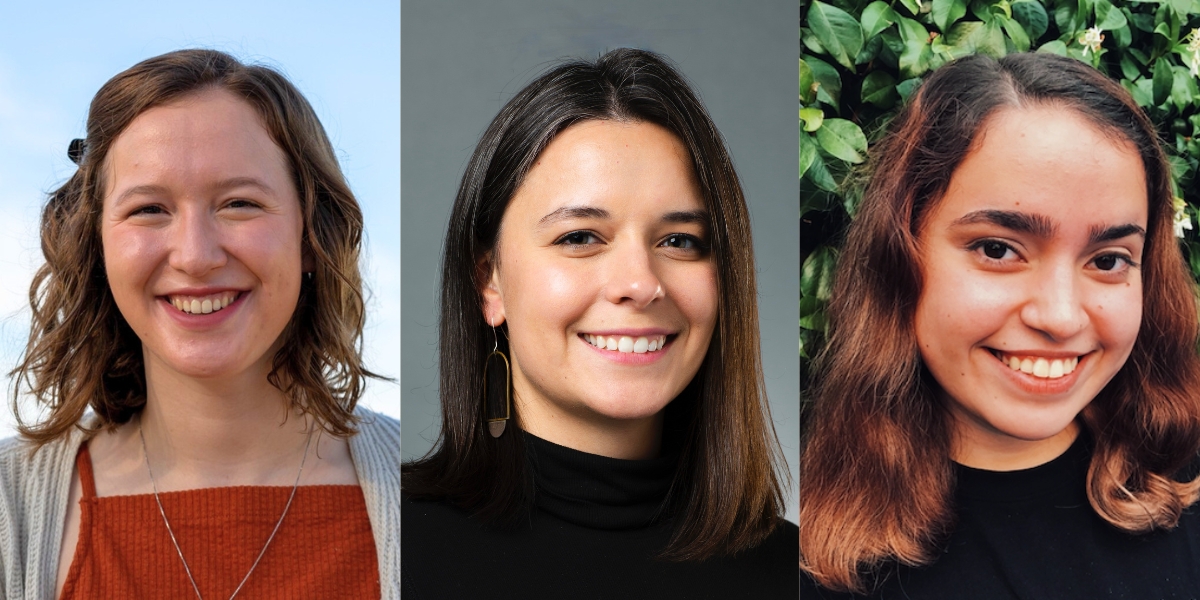Rental Partner: Fever presents
We Call it Tango
A Sensational Argentine Dance Show

Town Hall Seattle and UW Engage Science present
UW Engage 2024
Note: UW Engage events are approximately 90 minutes long.

Hear from UW students about their research on the thymus, a tiny but essential organ, extreme weather events, and sampling snowflakes to predict winter storms.
Emma Lederer
Emma studies her favorite organ, the thymus – she works to develop therapeutics to improve thymic function as we age to decrease our chances of cancer and autoimmunity.
The thymus is an essential organ located above the heart, responsible for generating the cells required to protect us from threats inside and outside the body. External threats include infection by viruses and bacteria, and internal threats include self-destruction of our own healthy tissue (autoimmunity) or uncontrollable growth of our own body’s cells (cancer). As we age, the thymus shrinks in size, increasing risks of infection, autoimmunity, and cancer. Therefore, therapeutics to boost thymic function is an unmet clinical need. However, to date, there are currently no approved therapies to improve thymic function. One reason for this is that we still have many questions about how (and why) the thymus ages. Emma works to uncover the underlying reasons of thymus aging to develop therapeutic interventions to boost thymus function to help us live healthier lives.
Emma Lederer is a second-year immunology graduate student at the University of Washington and a researcher in the Dudakov Lab at Fred Hutchinson Cancer Research Center. She works to develop therapeutics to improve thymic function as we age to decrease our chances of cancer, autoimmunity, and infection.
Gabby Gauthier
Climate change is increasing extreme weather events, which can leave mental health problems in their wake. Gabby believes that how we remember these events may be key to recovery.
Mental health problems following life-threatening experiences are common. Climate change is increasing the likelihood of experiencing one of these events through more frequent and intense instances of extreme weather, like hurricanes and wildfires. When a disaster like this hits, it can affect whole communities, including the mental health infrastructure. Post-disaster memory processing may be a key predictor of who will experience long-term symptoms. Understanding the role of memory in recovery can help us imagine brief, memory-based treatments that could be made widely accessible in a disaster setting, revolutionizing mental healthcare in this high-need, low-resource setting.
Gabby Gauthier is a fifth-year PhD student studying the development and treatment of mental health problems following traumatic events, from experiencing violence to living through a hurricane. She focuses on how memory processing can help or hurt the recovery process, and how we might use memory to aid our mental health treatments.
Valeria Garcia
Valeria samples snowflakes while flying directly through snowstorms, studying snowflake growth in order to improve how snow is represented in weather forecasts.
When it comes to predicting winter storms, weather forecasts do not always get it right. Forecast accuracy is jeopardized when forecasters take shortcuts in how snow is represented, assuming that all snowflakes are round despite their different shapes. As such, weather forecasts know very little about how the iconic six-sided snowflake, called a dendrite, grows in snowstorms. Scientists think that dendrites cause heavy snowfall and grow 3 miles above the ground in 5-mile tall snowstorms. However, no evidence inside snowstorms has been shown to prove those guesses true. Without a clear understanding of how and where dendrites grow in snowstorms, forecasters cannot hope to improve the accuracy of their forecasts.
Are dendrites really responsible for most snowfall? Getting down to the bottom of this wintery mystery, Valeria Garcia flies directly through winter storms 3 miles above the ground to sample the snowflakes within. Her work will uncover the truth about what is growing inside snowstorms, paving the way for improving the accuracy of winter weather forecasts.
Presented by Town Hall Seattle and UW Engage Science.
Rental Partner: Fever presents
A Sensational Argentine Dance Show
Rental Partner: ValleyRain International presents
On the Edge